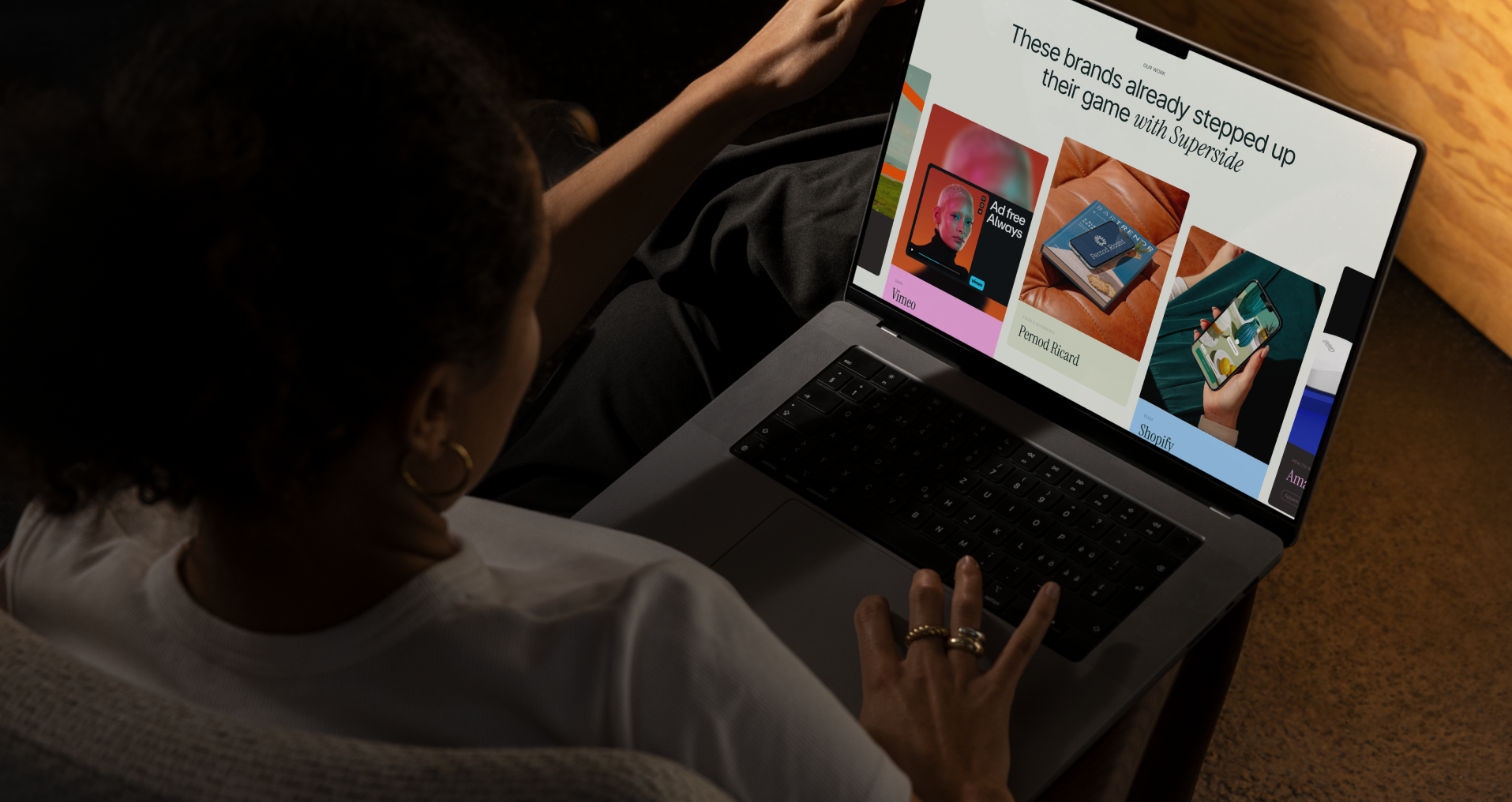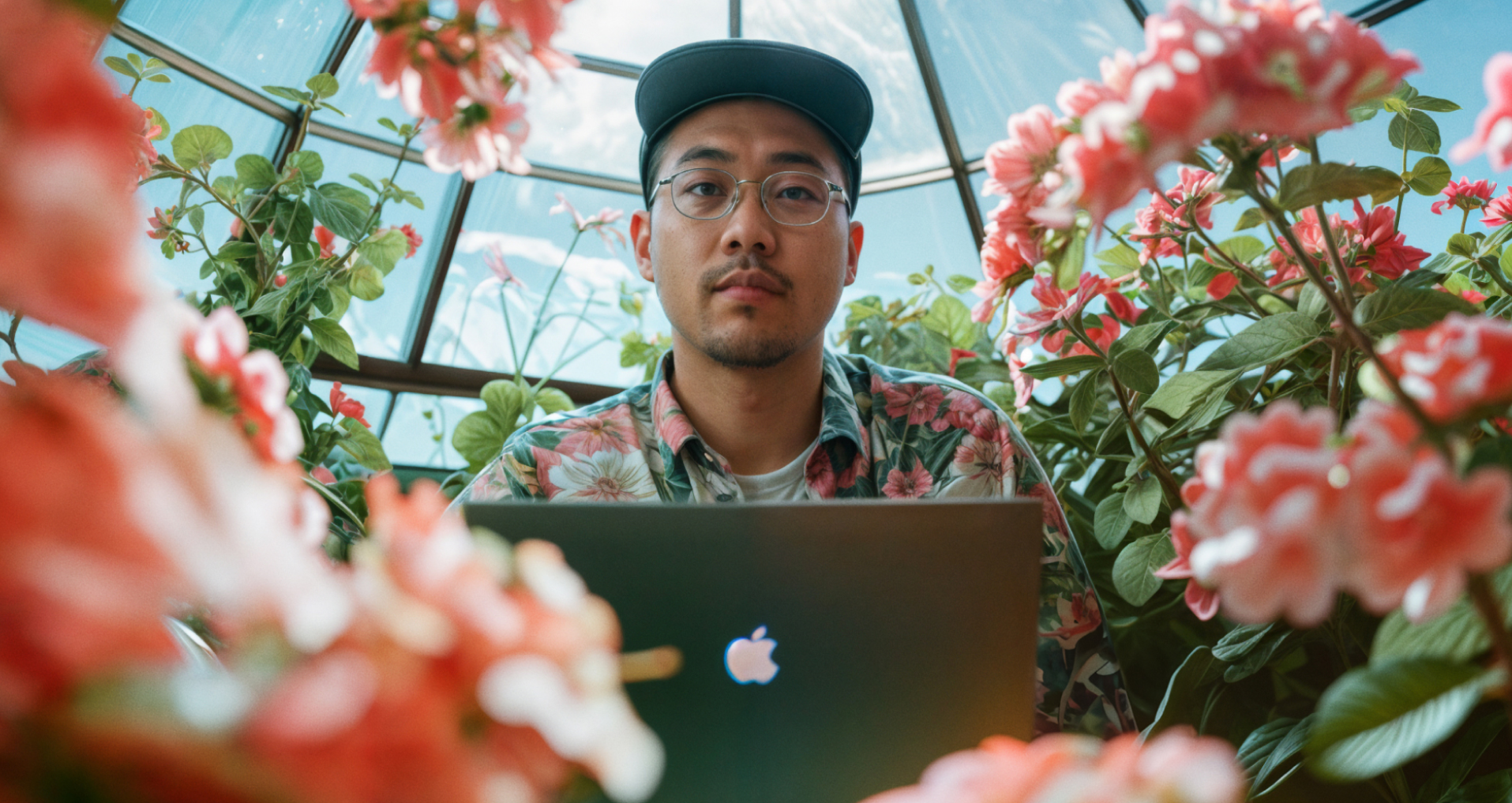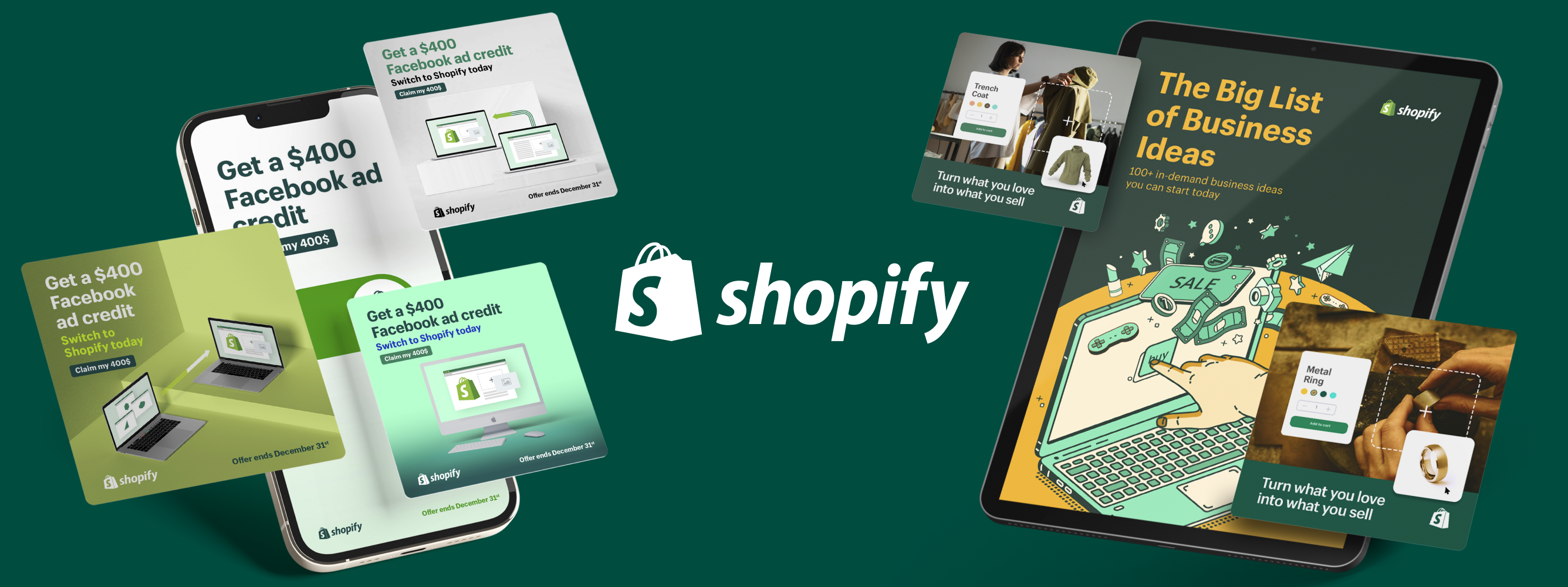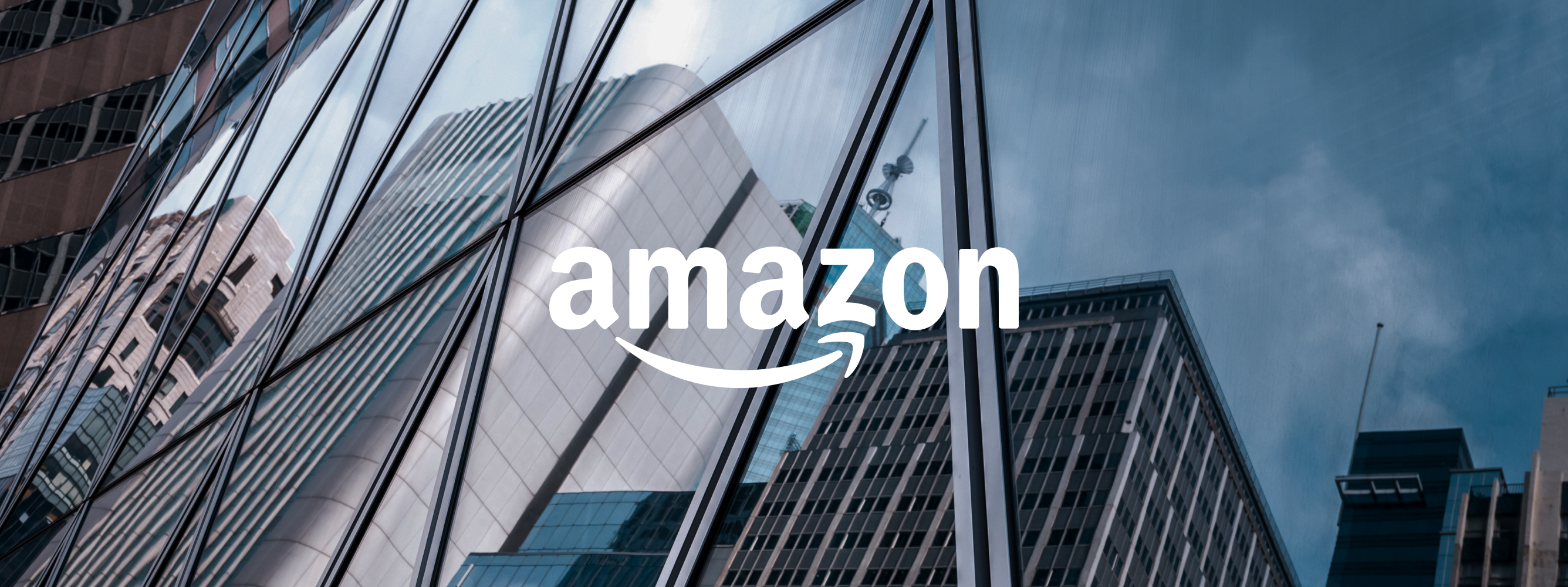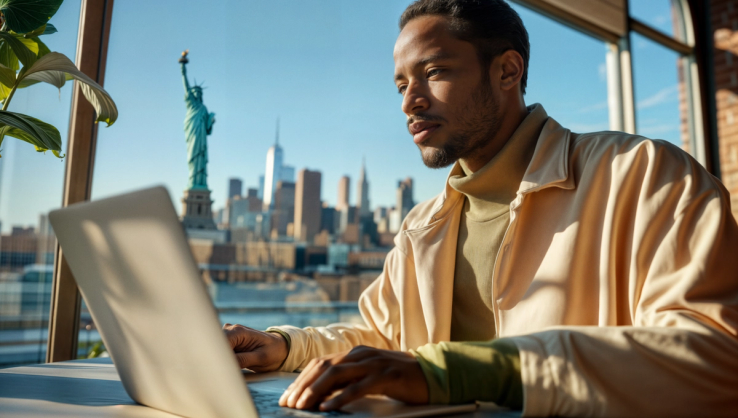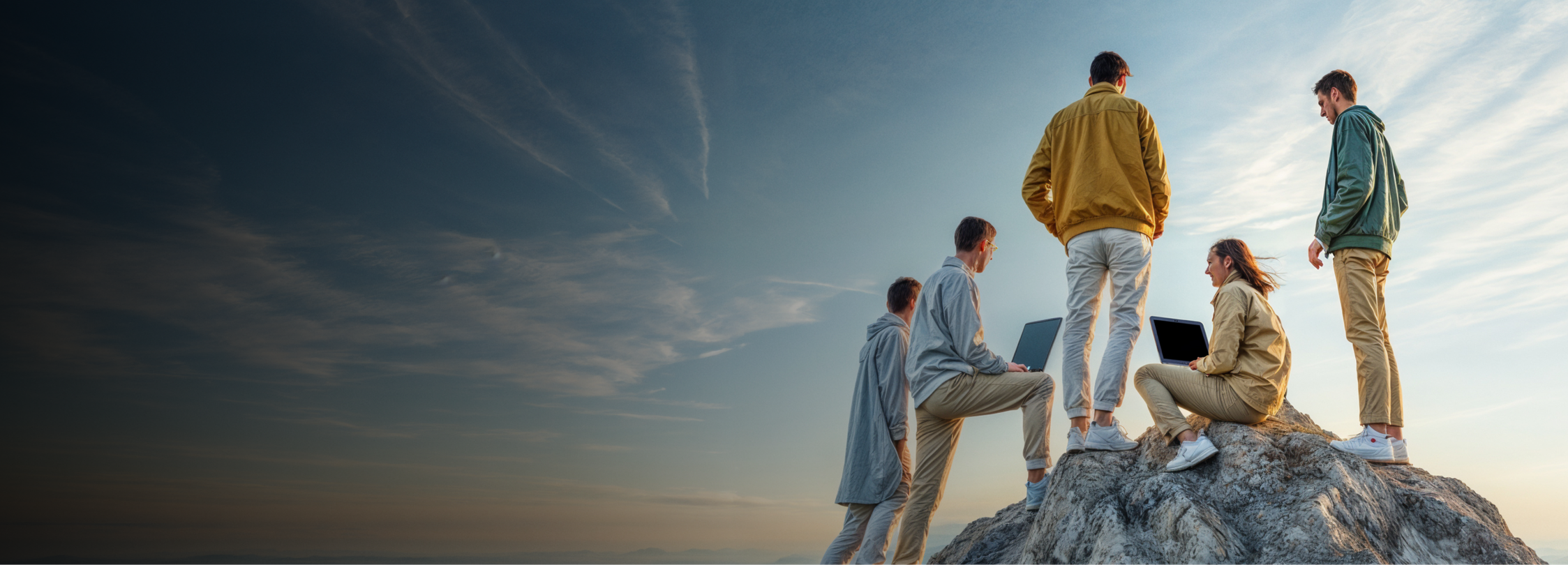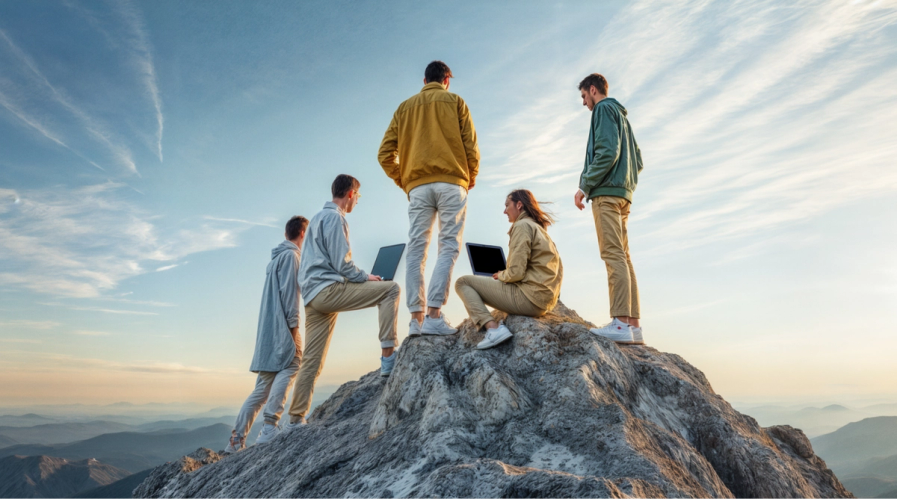Virtual Events: The Secret Ingredient to Positive Brand Experience

With the right design strategies, virtual events are an opportunity to extend and elevate your brand experience.
Think of brand experience as a stage production. Imagine all the work that goes on behind the scenes from lighting and music to costumes and set design. Then there are the hours of rehearsals to make the production seem effortless.
Everything is carefully planned so that by showtime all the audience sees is a streamlined spectacle. They get so absorbed in the atmosphere and the story that it becomes an immersive experience.
We like to think of brand experience as a show. Imagine all the work that goes on behind the scenes, from lighting to music, costumes to set design. Then there are the hours of rehearsals to make the production seem effortless. Everything is carefully planned so that by the time it hits the stage, all the audience sees is a streamlined spectacle. They get so absorbed in the atmosphere and the story that the whole world of the show becomes an experience. Similarly, good brand experience is the product of many parts combined.
In all, the final product should appear seamless and cohesive to audiences. A truly great brand experience creates something aspirational, something that stirs up feelings, something magnetic to new and existing customers. If you can pull this off, your brand will likely become a box office smash.
In this article, we’ll take a deep dive into the concept of using virtual events to boost your brand experience. Then, we’ll use our own design process as an example of how you can take your events and community to the next level with clear, consistent branding.
Here's what we'll cover:
What is Brand Experience?
Brand experience is the thoughts, reactions, and feelings your customers are left with after making contact with your brand.
Brand experience is present in every single step of your marketing strategy—it's the core element of the emotional response your brand provides to each and every customer (or missed opportunity).
Simply put, the objective of brand experience is to cause a positive reaction from customers. This should be achieved by stirring up a desired feeling or need: portraying an ideal that customers can aspire to, a sense of belonging, or having any kind of memorable experience with your service or product.
Brand experience is the unsung hero of successful marketing campaigns, but it can't just be conjured out of thin air. Creating an emotional response in your customers and audience takes time, but one of the fastest ways of presenting your brand experience is through events.
These days, as a brand, you need to go above and beyond. Instead of just having advertising and a clear social media presence, you need to bring more to the table. One of the clearest and most effective ways of adding that extra value while also boosting your brand awareness is with, you guessed it, virtual events.
Virtual events are one of the most effective ways to enhance your brand experience. Along with being able to show your industry expertise to the world, it also plays a key role in boosting brand awareness, recall, event engagement and ROI.
Why Virtual Event Branding is Key to Great Brand Experience
As the name suggests, brand experience is experiential at the core. It encompasses the thoughts, reactions, and feelings your customers have towards your brand.
Just think about the concept of events for a second; maybe imagine an event you went to recently. Not just a business event but a show, a play, a concert, or even the cinema—even if the event was terrible, it evoked some kind of emotional response within you and you'll certainly be able to remember the theme, plot, atmosphere, and characters of the event.
Your own events should provide the same experience: creating a microcosm of story, theme, atmosphere, and characters that the audience can follow and be entertained by. If you give people a show, they'll remember you fondly, and it will do wonders for your brand experience.
Virtual events have so much untapped potential to offer, but we understand that they can be difficult to start but you can simplify the planning and execution process using a virtual event software. Let’s take a closer look at how you can create a brand experience and design a virtual event to engage your audience and boost your brand online.
For this, we’re going to use ourselves as the example, showing you exactly how we use virtual events to boost our brand and create a solid sales pipeline
How to Incorporate Branding Into Event Design (The Superside Way)
At Superside, we have multiple virtual events across multiple platforms. However, they all maintain a consistent brand experience. We have our summits which happen twice a year, then our monthly Gather and Grow series, which focuses on bridging the gap between marketing and design. Then we also have our weekly Creative Juice Mondays, which promotes our community and invites discussion on the world of design.
Here you can see the clear design differences between all our events:
Our Virtual Summits:
Our Gather and Grow events:
Creative Juice Mondays:
As you can see, in each of these events, we show a different aspect of our business and brand, but we maintain a consistent stylistic experience throughout.
You’ll see that although each event comes from the same brand guidelines, they all provide a different brand experience. Our design team uses our core brand identity to appeal to the unique use cases of each event, ensuring that our audience experiences the right emotional or pain point response with each event invitation they receive.
When designing your marketing strategy, you need to continuously check if each component ties into the brand experience you wish to deliver. In other words, consistency is key. For this reason, creating a brand experience requires a high level of design input and, more specifically, brand design.
I reached out to Diana Kolesarova, Superside’s Head of Events, to ask her about brand consistency. Here’s what she had to say:
“Brand consistency is vital in ensuring effective communication, relaying the value of an event, and showcasing the content that will be shared. A lot goes into making an event possible, and it all needs to be consistent. Events are very common these days, and so an event marketer is always looking for ways to stand out.
Everything from pre-event promotion to day-of content and post-event content distribution has to be consistently branded. If it all follows a consistent brand (the colors, icons, titles, tone, music or videos, etc), event marketers can be very effective when adding the speakers and session topics to the overall direction of the event, ensuring success in registrants and attendees. Branding helps communicate the content and offering and even helps target the right audience. If an event has a brand that people resonate with and is consistent in the value proposition, interest peaks and action is taken.”
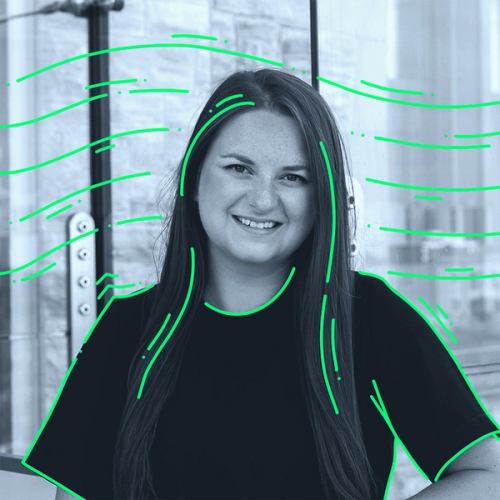
In short, brand consistency adds clear and credible perceived value to your events. Not only will this bring in more viewers, but it will also help you in snagging more high-level and influential guests.
For example, we placed a strong emphasis on brand design and creative conception for Ignite, our summit design for creative leaders. In doing so, we were absolutely blown away by the caliber of guests that were welcome to join us on our panels. Creative leaders from Reddit, Paramount, Zapier, Headspace, Shopify, Webflow, Matterport, Coursera and so so many more were happy to be part of our events.
Why?
Because like recognizes like.
If you present a well-designed, well-crafted event to your audience and potential speakers, you will attract industry leaders that recognize the caliber and quality of the event you are presenting.
But what other benefits are there in having high-quality brand design at your events?
The Unexpected Benefits of Quality Virtual Event Design
The biggest unexpected benefit is the elevated experience that attendees have at our events. At Superside, we are extremely lucky to work with some of the industry’s best designers and creatives. Together we make sure that the event experience is the best it could possibly be, primarily by making the production of the event on-brand. Utilizing overlays, music in between sessions, and branded slides for all presentations makes sure that attending a Superside event is fun, educational, and attendees get a lot of value. With consistent branding, there is the direction that everyone can follow and contribute to, making the result that much better.

If everything in your event has a clear, linear path, your guests will digest the information far more readily and, quite frankly, enjoy the experience a lot more.
The core principle in creating these clear brand experiences is having a solid foundation in your brand guidelines and style guide. This can often be a struggle for businesses, especially those that are rapidly scaling, but it's not an impossible task.
One of the easiest things you can do to make your marketing and design teams' lives easier is to develop a forward-thinking, proactive operations model, which we'll teach you how to do right below.
How to make your (and your design team’s) life easier
If you want your virtual events to make an impact, you’re going to need a regular cadence. If you only have one event a year, or if every time you host an event you’re starting from scratch, things are not going to go well.
Organizing a virtual event can be a headache. Getting guests, organizing scripts, designing slides, and everything else that comes with it can become overwhelming. When you add in high-quality design and a clear brand experience, it can sometimes become unmanageable.
That’s why we’re going to give you a little secret, one that could save you countless hours of back and forth.
What if—hold your breath—we told you, that our marketing team makes most of the creative assets for our events?
All you creatives out there, hold your screams for now.
Our marketing team is able to make our event designs because our creative team gave them a secret weapon: Templates.
With such a high cadence and an endless list of event assets to produce, we realized we were putting way too much pressure on our design team.
To remove that dissonance and pressure, our design team created templates that our marketing team can use to create fast, consistent assets. Then, the design team just needs to take a quick cursory quality check before sending it on its way.
This has saved us thousands of hours in reviews, ideation, and design time, and it’s one of our biggest assets in creating high-quality, consistent creative.
Branded templates are a life saver! We work with the Superside team (yes, we are our own customers) to conceptualize and create the foundations on which we can scale an event. This is where we identify the core elements of icons, illustrations, and colors so we can then apply these to promotional materials (email banners, social media assets, landing page design, etc). Without this foundation, we would have to reinvent the wheel for everything. The branding ad style guide allows for flexibility when we need someone outside of the planned scope (speaker highlight assets as an example). Templates also enable speed; now I don’t have to wait days for assets. If small changes have to be made, those can also be done extremely fast. Virtual event branding templates/a consistent brand style guide are a no-brainer for event marketers.

Templates can be an absolute lifesaver in the design process, but they're not simple to create. To do this, you need to have clear lines of communication between your marketing and design teams, and when the marketing team doesn't know their Figma from their Adobe (and the design team don't know their CAC from the CPC), you need to find a middle ground.
We've created a guide that can show you exactly that: how to break down the barriers between marketing and design teams, which you can find below.
How to Weave Your Brand Voice Into Virtual Events
So, now you know how the event cake is made—but how can you do it for yourself?
Even companies with the most extensive brand experience strategies often overlook the opportunity to harness the power of brand voice for virtual events. Here are the basic steps towards developing your brand voice for virtual events:
1. Find the pain point
This shouldn't be difficult if you have a well-developed brand voice that caters to your customers' needs. When designing a virtual event, it can be helpful to zoom into one particular pain point or need. This will help to define your event and get clear on the goals you want your virtual event to achieve. It could be providing information or educational resources or fostering a sense of community amongst your client base. The possibilities are endless, but a good starting point is to ask: what does your audience want to hear, and how do they want this information to be delivered?
2. Find your ideal spokesperson
The next step in virtual event design is choosing the ideal spokesperson. This is someone who can embody your brand’s personality and support your brand voice. This could be someone from your team, an industry expert or thought leader, a brand advocate, or even a few different spokespeople. The spokesperson for your brand event should be someone who celebrates all your business has to offer and whose values align with your brand identity.
This is also a great opportunity to partner with industry leaders. For example, Superside reached out to a long list of industry leaders for our Ignite summit, and, as we mentioned above, we found that many of these industry leaders were happy to collaborate with us.
By creating a clear brand voice for your event, you considerably increase your chances of getting high-quality, industry-leading guests.
3. Find the right stage to share your story
Using virtual events to amplify your brand voice calls for strategic event design. You could have the most streamlined brand experience in the world, but if you're hosting your virtual event on Instagram and all your customers are on Linkedin, you may as well be preaching into the void.
To prevent your efforts from going to waste, you should carefully consider the location of your virtual event. You’ll know your industry best, so it is worth also considering channels that are less mainstream but will yield more targeted results. Checking where your audience is talking and listening will give you a clue about where your event should take place.
It is also worth noting that for optimal results, you may want to incorporate several different platforms. For example, Superside’s events can be found on YouTube, LinkedIn and in our event database, which is an evergreen resource our audience can return to. It’s also a good idea to offer a space for follow-up discussions and interactions after the event has taken place; community forums are the ideal location for post-virtual event engagement.
Final Step: Don’t Forget the Emotional Response
The key to optimizing your virtual event is giving as much attention to online event branding and event design as you would to an in-person event. As we know, brand experience is a sensory or emotive response from your customer base to interactions with your brand.
Needless to say, during virtual events, the senses are limited to visual and auditory. However, you can use this to your advantage. By narrowing the focus, you can adapt your virtual event design to fully optimize these aspects. You can still create an immersive brand experience by amplifying your brand voice and elevating certain elements of event design, such as graphics and visuals.
If you feel out of your depth when it comes to virtual event design, you can always outsource the visual elements of your branded event design to experts—collaborating with professional designers to make your vision come alive and create a more polished and immersive brand experience.
In the end, it’s all about creating a seamless, clear design experience for your employees, guests, and viewers—which is easier said than done.
On the design side, we’ve talked a lot about operations, and this is exactly where (one of) Superside's powers lies: creating seamless design solutions. We don't keep our recipe a secret, and you can read all about how you can unlock successful design within your team by reading our in-depth DesignOps guide.
Sofie is an SEO and content specialist. From being a journalist at your daily news television broadcast, to producing films and writing travel blogs; she has ended up at the more technical side of content and has a nose for sniffing out the creative pieces that will make your competitors look like digital noobs.
When not busy operationalising Content, she is happily cooking up a storm, hiking through the mountains or searching for the best flight tickets to her next travel destination.
